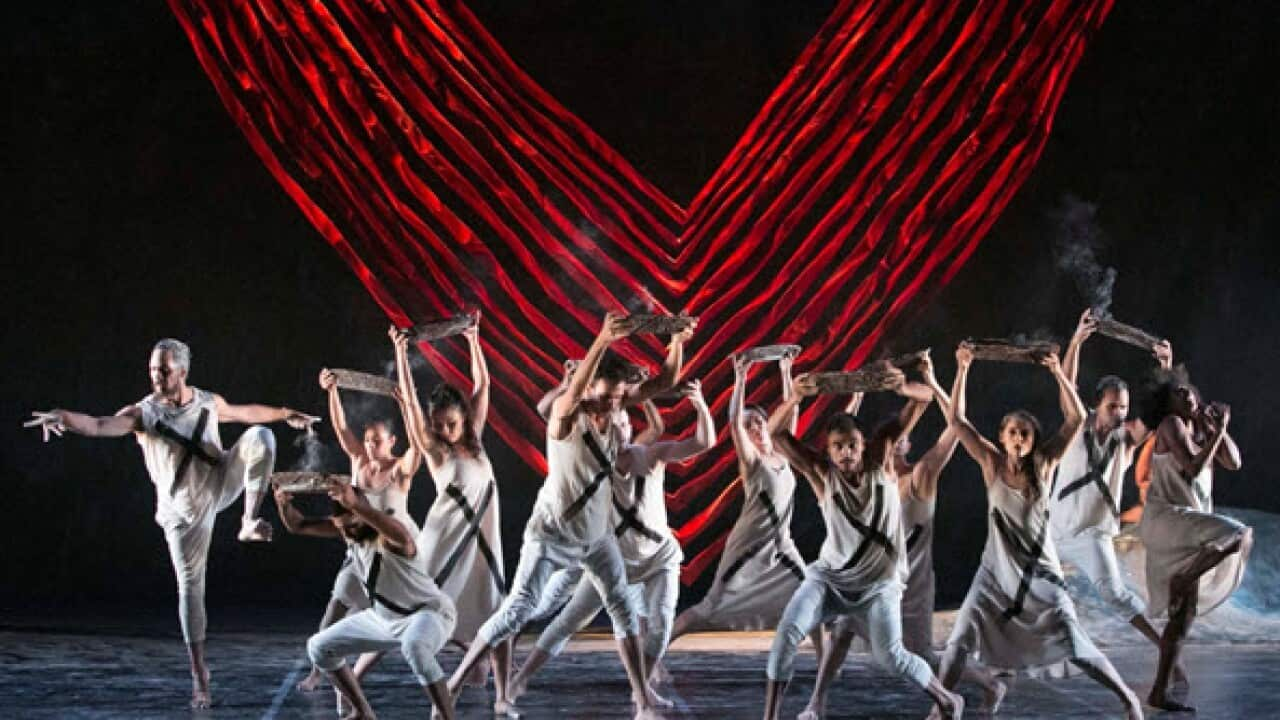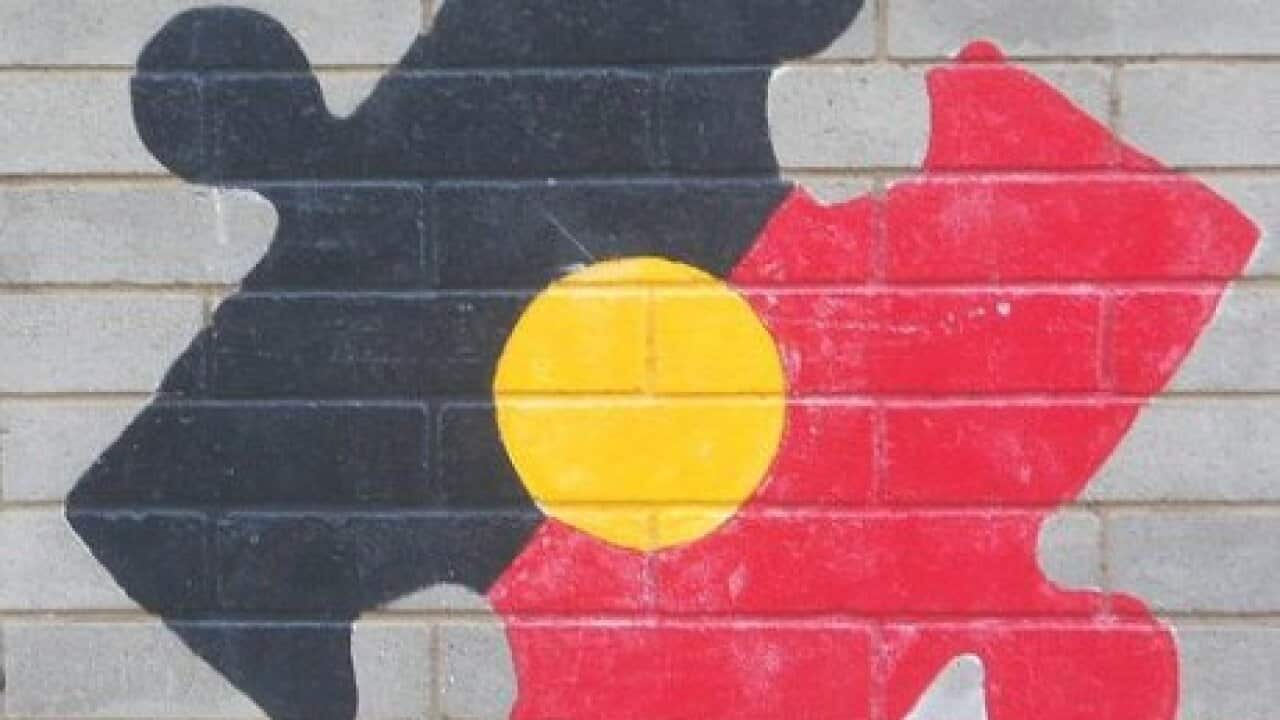The world acclaimed Bangarra Dance Theatre is in Geneva helping Australia's charm offensive to win a seat on the UN's Human Rights Council.
Bangarra says it was invited by the government to demonstrate the strength, power and resilience of Aboriginal and Torres Strait Islander culture.
The three performers were Djakapurra Munyarryun, a Yolngu songman from North East Arnhem Land, Elma Kris, who was raised on Thursday Island, and Waangenga Blanco, a descendant of the Mer Island people and of the Pajinka Wik in Cape York.
"Our presence in Geneva is part of the broader global conversation about social inequality and the best ways in which to navigate and work towards solutions," Bangarra's executive director Philippe Magid told SBS News.
"We take great pride in the role we play as cultural ambassadors on the international stage."
Mr Magid travelled to Geneva with the dancers.
"I think the beautiful thing about Bangarra is what we can do in 15 minutes to tell the story of Aboriginal and Torres Strait Islander people," he said.
International Development Minister Concetta Fierravanti-Wells is in the Swiss city to make the pitch, acknowledging Australia needs to do better on several fronts, especially in Indigenous affairs.
"We are not campaigning for a seat on the council because we claim to hold a perfect human rights record with our own Indigenous peoples," Senator Fierravanti-Wells told the audience in Geneva.
The annual Closing the Gap report tabled last month revealed the government is failing on six out of seven key measures. This week, the UN special rapporteur on violence against women criticised Australia’s efforts to address domestic violence in remote Indigenous communities.
"No country is without its own challenges or failings, including Australia. However, rather than denying our problems, we are seeking to address and learn from them and we are committed to sharing our experiences, our successes and our progress as well as our setbacks," the Minister said.
There are two vacancies on the council for 2018-2020. Australia is competing with France and Spain for the spots available to our grouping.
The Minister told delegates on Monday that Australia wants to use the position to push on five fronts: gender equality and empowerment of women, freedom of expression, good governance, the rights of Indigenous people and strong human rights institutions.
Elaine Pearson, Australia Director of Human Rights Watch, says the minister is right - Australia's human rights record is far from perfect.
"It's good that Australia is vying for a seat, it means that more attention will be paid to Australia's own human rights record, especially the treatment of asylum seekers and refugees," Ms Pearson told SBS News.
"I think we would have a better shot if Australia was more willing to engage with UN mechanisms and recommendations on those issues, certainly when it comes to refugees and asylum seekers, where we've failed to adopt many recommendations."
There have been several damning UN reports into Australia's system of mandatory offshore detention of asylum seekers on Manus Island and Nauru, including by its Committee Against Torture which described harsh conditions in the centres, "including … overcrowding, inadequate health care and even allegations of sexual abuse and ill-treatment".
Human Rights Watch also raised Australia's "inconsistent" approach on allegations of human rights abuses in Myanmar and Sri Lanka.
But Ms Pearson said many of the current members of the council, including China and Saudi Arabia, have problematic human rights records, that's why "it's important that we have countries that are prepared to be human rights champions" on the council.
Senator Fierravanti-Wells highlighted Australia's strengths and weaknesses before the council on Monday, including her own story as a daughter of Italian immigrants.
"Australia is one of the most culturally diverse yet cohesive nations on earth, we are an international and unique model for tolerance, respect, inclusion and integration," she said.
"This is not to pretend that Australia itself does not face challenges."
The vote takes place in New York in October.
NITV: Sport meets Indigenous art














